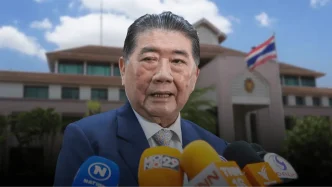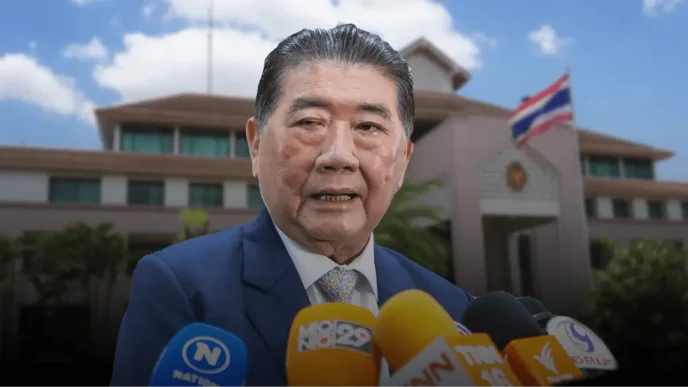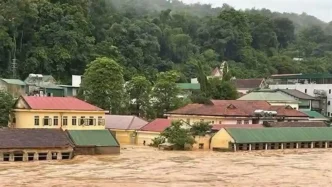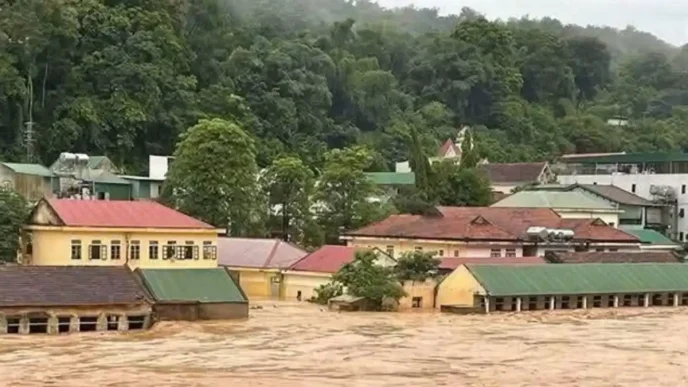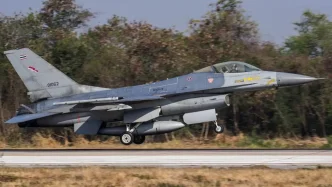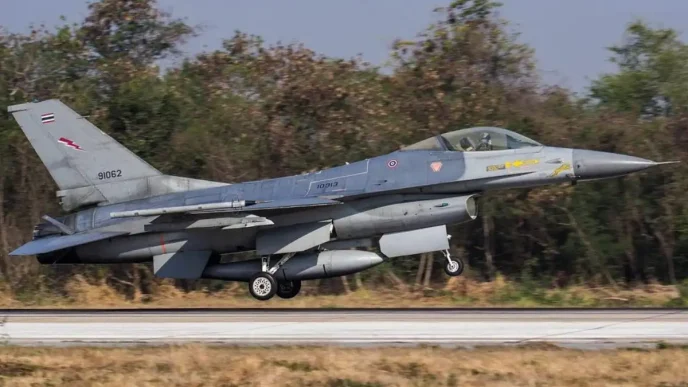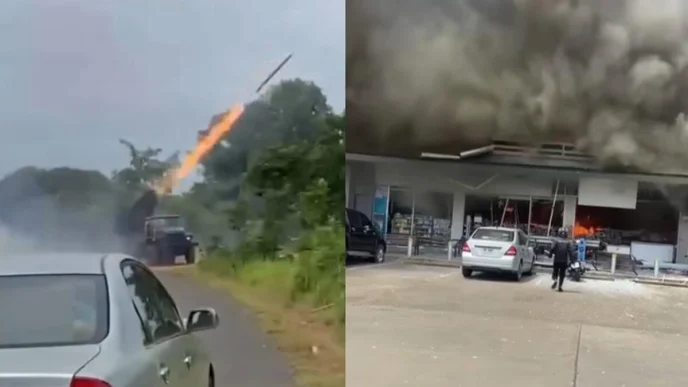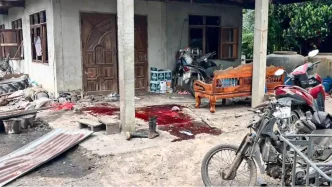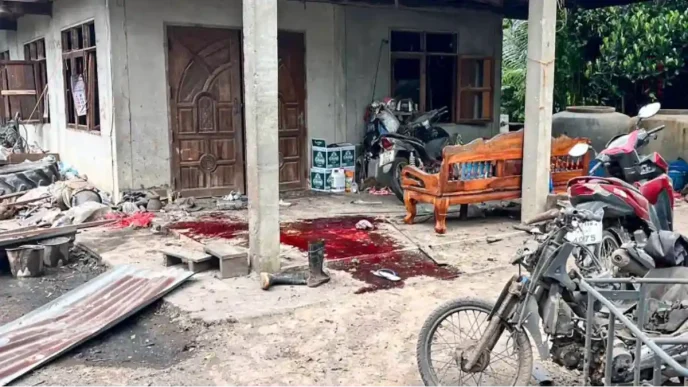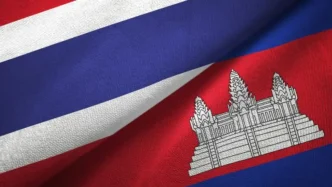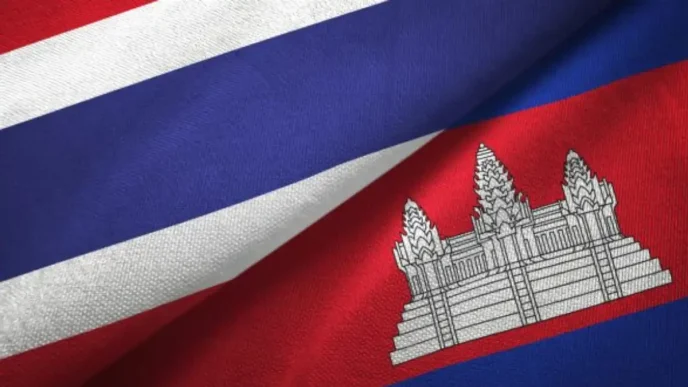In a decisive move to protect the Chao Phraya River’s fragile ecosystem, Thailand’s Marine Department has suspended the operating licence of the Royal Galaxy Cruise, operated by Happy International Trade, following allegations of waste dumping. The incident, which has sparked public outrage, underscores the growing challenges of balancing tourism with environmental conservation in one of Bangkok’s most iconic waterways.
Deputy Transport Minister Manaporn Charoensri confirmed that the cruise operator is accused of discarding waste directly into the river, causing significant environmental harm. The Marine Department has been instructed to investigate the case thoroughly and take immediate action, including filing a lawsuit against the crew under the Navigation in Thai Waters Act B.E. 2456 (1913). Violators could face penalties of up to six months in prison and fines of up to 10,000 baht ~USD280.
“This is a serious breach of environmental regulations,” Manaporn said during a press briefing in Bangkok. “We are committed to ensuring that such actions do not go unpunished and to protecting the Chao Phraya River for future generations.”
Immediate Suspension and Legal Action
The Marine Department, under the direction of Director-General Kritphet Chaichuai, has already suspended the boat’s operating licence pending a full investigation. Officials have been tasked with gathering evidence for legal proceedings, which will be filed at Pakkhlongsan Police Station. An inspection of the dinner cruise vessel is also underway to assess the extent of the violations.
Kritphet emphasised the department’s zero-tolerance policy towards environmental negligence. “We have ordered our teams to act swiftly and ensure accountability,” he stated. He also urged the public to report any water safety or environmental incidents via the Marine Department’s 24-hour hotline, 1199.
Beyond immediate punitive measures, the department is engaging with the Thai Boats Association and passenger boat operators to develop long-term strategies for safeguarding the river’s ecosystem. Discussions are expected to focus on stricter enforcement of waste disposal regulations and enhanced monitoring of commercial vessels operating along the Chao Phraya.
The Chao Phraya: Bangkok’s Lifeline Under Threat
Often referred to as the “River of Kings,” the Chao Phraya is more than just a scenic backdrop for Bangkok’s bustling tourist trade. It serves as a vital artery for transportation, commerce, and cultural heritage, winding through the heart of the Thai capital and supporting millions of livelihoods. However, rapid urbanisation and the booming tourism industry have placed immense pressure on the river’s health, with pollution from waste dumping, industrial runoff, and untreated sewage becoming persistent issues.
Dinner cruises like the Royal Galaxy Cruise are a popular attraction for both locals and tourists, offering picturesque views of landmarks such as the Grand Palace and Wat Arun (Temple of Dawn). Yet, the environmental cost of such operations is increasingly coming under scrutiny. Reports of garbage and waste oil being discharged into the river by commercial vessels have raised alarms among environmentalists and local communities who rely on the waterway for fishing and daily needs.
The incident involving Happy International Trade is not an isolated one. Over the past decade, the Thai government has repeatedly faced criticism for inconsistent enforcement of environmental laws along the Chao Phraya. While initiatives such as river clean-up campaigns and public awareness drives have been launched, critics argue that more robust regulations and harsher penalties are needed to deter violators.
A Call for Stronger Enforcement
The Marine Department’s response to the Royal Galaxy Cruise incident signals a potential shift towards stricter oversight. In addition to legal action against the crew, the department has been tasked with coordinating with other agencies to strengthen enforcement mechanisms. This includes plans to enhance cooperation with local authorities and environmental groups to monitor and preserve the river’s marine ecosystem.
Environmental advocates have welcomed the government’s swift action but caution that systemic change is necessary to address the root causes of pollution. “Suspending a licence is a good first step, but we need comprehensive policies to ensure that all operators adhere to environmental standards,” said Nattapong Srisuk, a Bangkok-based environmental activist. “The Chao Phraya is a national treasure, and we cannot afford to lose it to negligence.”
Public sentiment, as reflected in online discussions, mirrors this concern. Many Bangkok residents have expressed frustration over the recurring pollution of the river, with some calling for a temporary ban on dinner cruises until stricter waste management protocols are in place. Others have pointed to the need for better education and training for boat operators to prevent such incidents in the future.
Balancing Tourism and Conservation
The Royal Galaxy Cruise case highlights the delicate balance between sustaining Thailand’s lucrative tourism industry and protecting its natural resources. Bangkok welcomes millions of visitors each year, many of whom are drawn to the cultural and scenic allure of the Chao Phraya. Dinner cruises, in particular, generate significant revenue for operators and contribute to the city’s vibrant nightlife economy. However, without proper oversight, such activities risk irreparable damage to the very attractions they promote.
The Thai government has pledged to prioritise sustainable tourism as part of its broader environmental goals. Recent policies have focused on reducing plastic waste, promoting eco-friendly practices, and cracking down on illegal dumping. Yet, enforcement remains a challenge, particularly in a city as densely populated and commercially active as Bangkok.
If the allegations against Happy International Trade are confirmed, the case could set a precedent for how environmental violations are handled in the tourism sector. A successful prosecution of the cruise crew may serve as a deterrent to other operators, while also reinforcing the government’s commitment to conservation.
Is There Enough Governance?
As the investigation into the Royal Galaxy Cruise unfolds, the Marine Department’s actions will be closely watched by both the public and environmental groups. The outcome of the case could influence future policies on river transport and tourism, potentially leading to tighter regulations and more proactive monitoring of commercial vessels.
For now, the suspension of the cruise’s licence sends a clear message: environmental negligence will not be tolerated. Whether this translates into lasting change for the Chao Phraya River remains to be seen. In the meantime, the Marine Department continues to encourage public vigilance, urging anyone witnessing suspicious activity on the river to report it promptly.
The Chao Phraya has endured centuries of change, from royal processions to modern commerce. Protecting its future, however, will require more than temporary suspensions or fines—it demands a collective commitment to preserving one of Thailand’s most cherished natural wonders.



